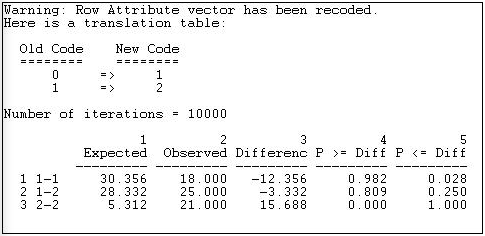In select we need to use only columns which are used in group by. In filter condition we need to use having clause instead of where clause. Group by vs Partition by in Oracle - Stack. In select we can use aggregate funtion, column names, constants and expressions.

Group By Clause Partition By Clause Reduces the no. GROUP BY does not do such a numbering. Look up OVER in BOL to find out more. It allows you to reset something on a per group basis.
For example, you can get an ordinal column within a group by partitioning on the grouping field and using rownum() over the rows within that group. Many cases can not always remember the best. The ROW_NUMBER windowing function actually numbers the rows int the partition.
This article explains how these two functions can be used in conjunction to retrieve partitioned data in very specific ways. Yes, you can, but you should be consistent regarding the grouping levels. PurchaseOrderHeader) SELECT VendorI LastOrder.
It gives one row per group in result set. You want to assgin a sequential unique number to orders placed by a customer. PARTITION BY is about carving up data into chunks. This keywor along with the OVER keywor allows you to specify the range of records that are used for each group within the function. Customer Order New Seq.
This is one of the basic and necessary terms that you may have used in your daily life when working on SQL Server and of course a question that is generally asked in interviews. In this approach, indexed views of every combination of non-leaf attributes are precalculated and queried directly. This is the beauty of these keywords and may be utilized to make the rows sequential in manner.
Kindly find an attached SQL file. By looking into the output we can clearly understand the difference between three functions. Rank function will skip the sequence while assigning the rank for the group of partition and assigns same rank for equals. As we observe in the above output it skipped for the group of partition (1278345). To summarize, the key difference between order by and group by is: ORDER BY is used to sort a result by a list of columns or expressions.
MBR vs GPT: Which One Is Better for You? What are MBR and GPT partition styles? Which one should you choose when you first initialize a disk in Windows? This post details differences between MBR and GPT, helping you choose the most suitable one, and also tells how to convert GPT or MBR without data loss. You can use aggregation functions (e.g.
COUNT, SUM, AVG) on the grouped column. Analytic functions and group by. Explain, step by step, how you figure the right in those places. DENSE_RANK: Returns the rank of rows within the partition of a result set, without any gaps in the ranking.

The rank of a row is one plus the number of distinct ranks that come before the row in question. NTILE: Distributes the rows in an ordered partition into a specified number of groups. The groups are numbere starting at one. This clause creates a single row for each group and this process is called aggregation.
To use group by clause we have to use at least one aggregate function in Select statement. We can use group by clause without where clause. That is group by alwasy reduces a group of values to value. Hoever, analytics_function() over( partition by column) does not aggreage. It returns a value for each record in the group.
The OVER clause can be used with all of the aggregate functions. Without distinct, the two first_value() expressions transforms the task and code_subject into the same values for all rows per same name. I would have made a group by name, but this is not supporte so instead I put in distinct. When WHERE and HAVING clause are used together in a SELECT query with aggregate function, WHERE clause is applied first on individual rows and only rows which pass the condition is included for creating groups.
Re: Difference between group by clause and having clause between clause is used for range between two values and having clause is used to filter the result on the groups.
Geen opmerkingen:
Een reactie posten
Opmerking: Alleen leden van deze blog kunnen een reactie posten.